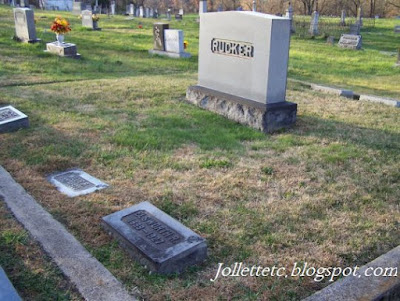The sad thing about this week’s prompt “Bachelor Uncle”
is the realization that most of mine were NOT bachelors by choice. Rather most
were bachelors because they did not live long enough to be otherwise. One bachelor
in particular that I have often wondered about is my maternal grandmother’s
brother William Randolph “Willie” Rucker. Unlike their older brother Ray, also
a bachelor uncle, Willie did not leave behind a box of photos and memorabilia
to tell his story. Two census records, a death certificate, a tombstone, and a
couple photos are all there is to show that Willie Rucker lived.
Willie was the third son and third child of seven born to
Joseph Calhoun Rucker and Sudie Eppard Rucker of Shenandoah, Page County, Virginia, where
his father was a conductor for the railroad. Willie’s death certificate says he
was born in February 1903, but it is more likely he was born in 1901. The 1910
census shows him as being 9 years old and his sister Rosalind as 7 having been
born in April of 1903.
In the 1920 census, Willie was 18 and without occupation.
His oldest brother Everett had joined their father at the railroad; brother Ray
was in the Navy and therefore not enumerated with the family. Likely Joseph and Sudie did not approve of Willie being idle. So probably it was about that
time that he joined the Navy.
Willie was assigned to the USS Chaumont, a cargo and
transport ship, commissioned by the Navy in 1921. Likely he was on one of
several voyages between San Francisco and Manila in 1923 when he took ill.
 |
| The USS Chaumont Typical Hog-Islander style ship remembered as being UGLY but expert at eluding enemy subs that could not tell which way the ship was heading |
Willie was treated by Navy doctors at the Naval Hospital
in Norfolk, Virginia from June 27, 1923 until his death on December 17. Cause
of death was chronic endocarditis which is an infection of the inner lining of
the heart valves and chambers. It is caused by bacteria entering the blood
stream and attaching to damaged areas in the heart. Symptoms resemble the flu -
fever and chills, night sweats, aching muscles and joints, and fatigue. More uncommon
symptoms include swelling of the legs and feet, unexplained weight loss and red
spots on the body.
Endocarditis is treated with antibiotics and sometimes
surgery. Surely naval ships stocked antibiotics. Perhaps Willie had a severe
case that required surgery, otherwise there seems no good reason for him to
die. My grandmother said that Willie could have survived had he gotten to a
hospital earlier.
 |
| Willie's tombstone in the Methodist Church Cemetery Shenandoah, Page Co, VA |
 |
| Rucker family plot Methodist Church Cemetery, Shenandoah, VA |
Willie is buried in the Rucker family plot in the Methodist Church Cemetery in Shenandoah, Virginia.
Amy Johnson Crow continues to challenge genealogy
bloggers and non-bloggers alike to think about our ancestors and share a story
or photo about them. The challenge is “52 Ancestors in 52 Weeks.”
Wendy
© 2019, Wendy Mathias. All rights reserved.




Wendy, I could be wrong but I don't think that antibiotics were available in 1923. My grandmother died in 1925 of an ear infection and we were always told she would have lived if antibiotics were available
ReplyDeleteI had not considered that. Interesting. I guess I should say TODAY it is treated with antibiotics.
DeleteSad to hear about Willie dying so young. It's good that you are keeping his memory alive!
ReplyDeleteDoing my best . . . .
DeleteAn interesting post about a short life of a bachelor uncle. I'm sorry he had to suffer with that condition.
ReplyDeleteI know. It must have been miserable to experience.
DeleteSo true if Willie was alive now and at least for the past 50-60 years he would have made a full recovery. My mom came from a family of 10 siblings; 4 boys, 6 girls. All got married but one bachelor. He lived to be in his 80s and had a lot of hobbies like clock making, hunting, etc.
ReplyDeletebetty
In digging around my lines, I found only one bachelor uncle who lived a long life.
DeleteThere was a naval hospital is Norfolk? I never knew that!
ReplyDeleteAntibiotics were discovered in 1928, not available until mid 1940’s. Had the doctors known or learned about Egyptians using moldy bread on an open wound, they might have produced penicillin sooner! Willie and Grandma had the same nose.
The death certificate says Norfolk, but I suspect it meant Norfolk COUNTY.
DeleteSad that he died so young. My bachelor uncle that I'm writing about also died young.
ReplyDeleteThis comment has been removed by the author.
ReplyDeleteWe were on the same wavelength, as my bachelor post was The Unintentional Bachelor. You did a super job keeping Willies memory alive.
ReplyDeleteIt's sad to think that most of your bachelor uncles were bachelors because they died so young.
ReplyDeleteWould they have had antibiotics in 1923? I haven't done any research but they seem newer than that.
It's good you chose to honor and remember Willie with this post. It's so sad he died at such a young age.